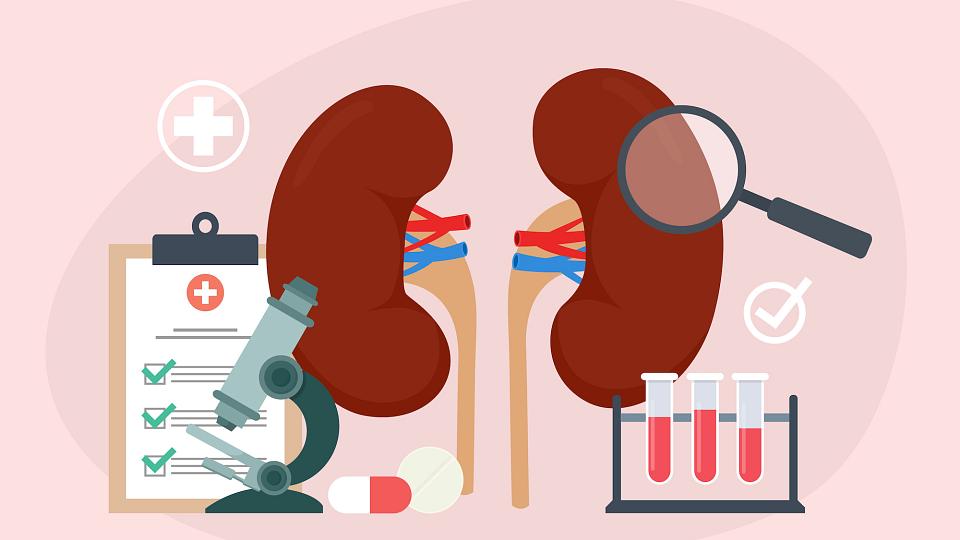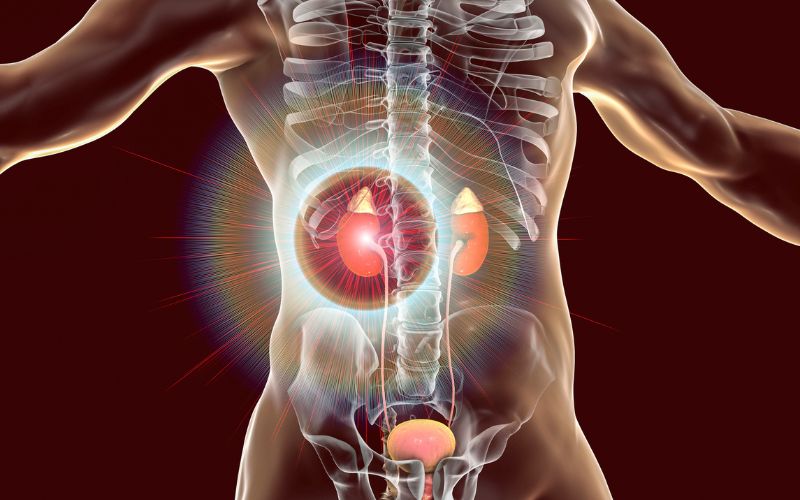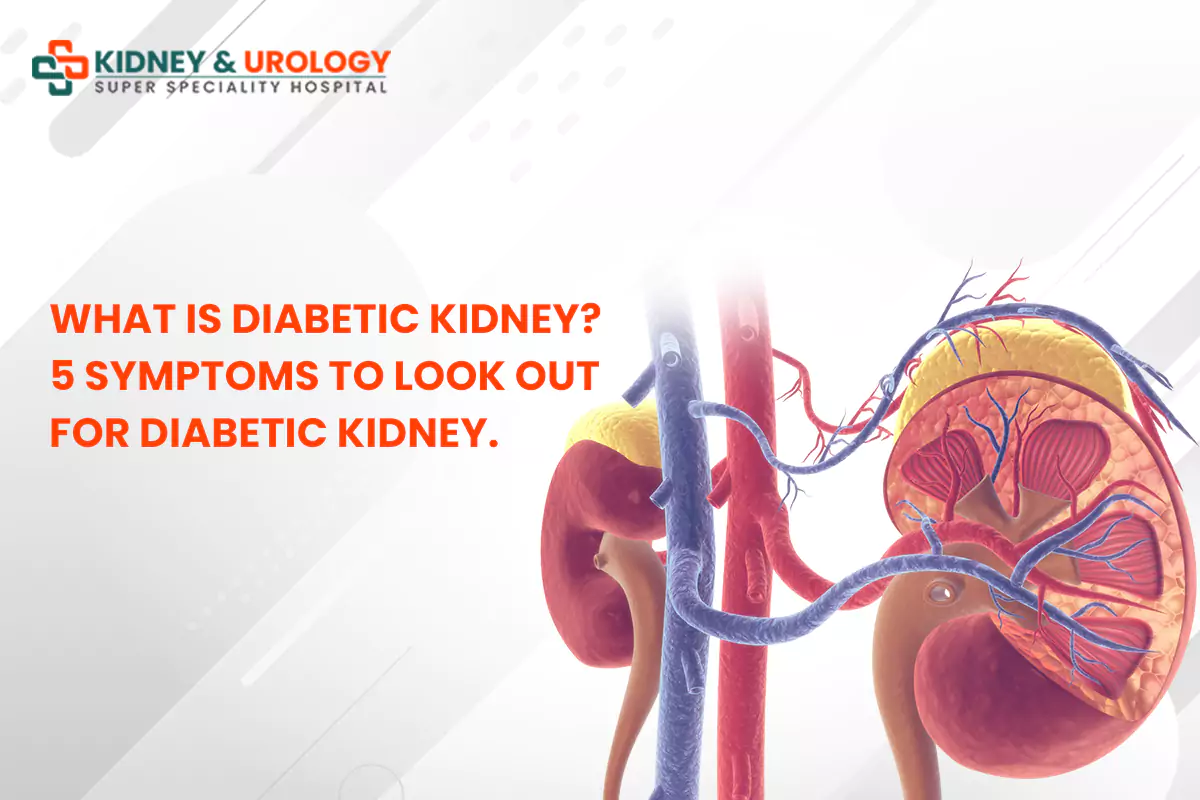Frequent Urination and Urinary Incontinence Explained by Urologist in Haryana
Urinary incontinence or frequent trips to the bathroom can feel uncomfortable and concerning. That said, these conditions are perfectly common and usually manageable given effective treatment, and many people will feel embarrassed about them, but it's not their fault. Learning about these conditions, what leads to them, and how to treat them can help people cope with symptoms and lead better lives. At SS Kidney and Urology Hospital in Haryana, we believe in educating our people about these types of urological issues.
Exploring the Causes of Frequent Urination
Urinary frequency is the need to urinate more often than normal, and it can interfere with daily activities, work, and sleep. While it is normal to urinate 6-8 times during a day, urinating more than that despite no excess fluid intake can be a cause of concern. Several conditions can cause frequent urination, but some of the most common reasons are as follows:
- Urinary Tract Infections (UTIs): Infections in the urinary system can cause the bladder to become irritated, leading to a constant urge to urinate. Other symptoms include burning, fever, and lower abdominal pain.
- Diabetes: High blood sugar levels can lead the body to produce more urine as it tries to rid itself of excess glucose. Frequent urination is among the first signs of diabetes.
- Overactive Bladder (OAB): OAB causes urgent, powerful urges to urinate because your bladder muscles involuntarily contract even when your bladder is not full.
- Medicines: Certain medicines—especially blood pressure tablets known as diuretics—can increase your urine production, leading to more frequent urination.
- Bladder Stones: Some small stones that develop in the bladder can irritate the bladder wall, creating a more frequent urge to urinate.
- Neurological Disorders: Diseases such as Parkinson’s and multiple sclerosis can interfere with the signalling from the bladder, causing frequent urination.
Frequent Urination in Males
In men, it is often associated with prostate problems. The potential causes include the following:
- Growth of the prostate (Benign Prostatic Hyperplasia—BPH): The prostate can grow larger and start putting pressure on the urethra, obstructing urine flow; this can cause frequent urination in men (nocturia, the term for multiple urination during night hours).
- Prostatitis: Inflammation of the prostate (prostatitis), which may be due to infection or other things, may also lead to more frequent urination, as well as discomfort and pain.
- Bladder Symptoms: In men, bladder outlet obstruction (BOO) is one cause of frequent urination.
Frequent Urination in Females
Women have multiple causes of frequent urination, including:
- Pregnancy: The uterus expands during pregnancy, applying pressure on the bladder and causing frequent urination during pregnancy. Bladder sensitivity is also affected by hormones.
- Menopause: Lower estrogen levels reduce the strength of pelvic muscles and can contribute to bladder control problems.
- Urinary Tract Infections (UTIs): Due to a shorter urethra, women are more susceptible to UTIs, as bacteria have a shorter distance to travel to the bladder.
- Pelvic Organ Prolapse: The weakening of pelvic floor muscles can lead to the bladder being displaced out of its position, leading to frequent urination in females.
What Causes Frequent Urination in Kids?
Concern among parents is common when children suddenly begin using the bathroom more often. Here are the several causes of frequent urination in kids:
- UTIs: Also, like adults, children can get urinary tract infections, which cause frequent urination, pain, and fever.
- Diabetes: Children with excessive thirst and frequent urination may be in the early stages of diabetes.
- Stress or Anxiety: Emotional stress can sometimes cause “pollakiuria,” a condition in which children urinate often with no infection or other medical reason.
- Over drinking: Some kids just drink too many fluids—and that translates to increased urination.
Urinary Incontinence
Urinary incontinence is the involuntary leakage of urine. It can also impact people of all ages but is more common in women and the elderly. Here are several types of urinary incontinence:
- Stress Incontinence: You leak when pressure builds up in your abdomen—for example, when you cough, sneeze, laugh, or lift something heavy.
- Urge Incontinence: An abrupt, strong need to urinate followed by involuntary leakage.
- Overflow Incontinence: The bladder never fully empties, resulting in an abundance of urine dribbling.
- Functional Incontinence: An individual has normal bladder control but is unable to get to the toilet quickly enough due to mobility problems.
Urinary Incontinence in Women
Urinary incontinence is one of the most common conditions faced by women due to childbirth, pregnancy, and menopause.
- Pregnancy and Childbirth: Giving birth can allow pelvic floor muscles to weaken, which can cause stress incontinence.
- Hormonal Changes: The drop in estrogen can affect the bladder.
- Obesity: Carrying extra weight creates pressure on the bladder that triggers leaks.
Urinary Incontinence in the Elderly People
Elderly people face the problem of urinary incontinence. Here are the several causes of urinary incontinence in elderly:
- Neurological Disorders: Conditions such as Parkinson’s or stroke can disrupt bladder communication.
- Weakness of Muscle: The bladder and pelvic floor muscles weaken with the ageing process.
- Medications: Some blood pressure, depression, or sleep disorder medications can cause or contribute to incontinence.
Treatment Options for Frequent Urination and Incontinence
Even if some cases need medical assistance, others can be done with a few simple changes in lifestyle. Here are some of the effective treatment methods provided at SS Kidney and Urology Hospital in Haryana to tackle these conditions.
- Lifestyle Changes: Limiting caffeine and alcohol, controlling fluid intake, and keeping a healthy weight can assist with symptom control.
- Exercises: Strengthening pelvic muscles through exercises like Kegels can improve bladder control.
- Medications: Depending on the cause, medications such as anticholinergics or beta-3 agonists might be beneficial.
- Surgical Treatments: Surgical options such as bladder sling surgery or artificial urinary sphincters may be necessary in severe situations.
Seeking Help in Haryana
If you are suffering from frequent urination or urinary incontinence, you should see a specialist. At SS Kidney and Urology Hospital in Haryana, our urologist in Haryana studies the evaluation and gives the prescribed treatment for your problem. We also provide kidney treatment in Haryana, such as:
- Kidney Stone Removal
- Dialysis for Kidney Failure
- Post-treatment of Chronic Kidney Disease (CKD)
- Kidney Transplant Evaluations.
By understanding some of the common causes of frequent urination and urinary incontinence, those affected may be able to seek proper medical treatment promptly. If you are experiencing such issues, contact a professional urologist in Haryana. We, at SS Kidney and Urology Hospital, Haryana, offer the best quality of care and superior treatments to help you get your bladder health back on track.
Contact SS Kidney and Urology Hospital in Haryana today for more information or to schedule a consultation.














Request A Callback